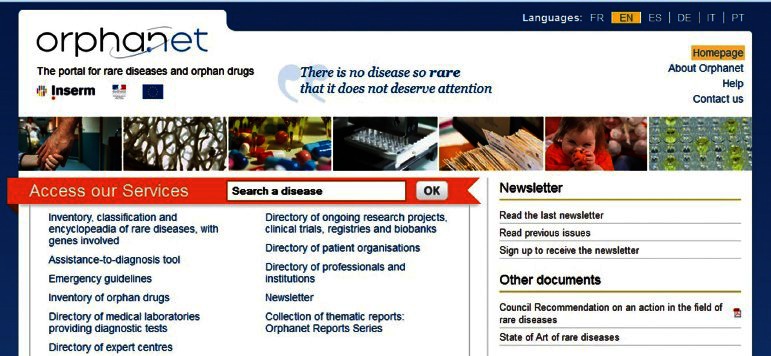
Orphan drugs are the stepchildren of the pharmaceutical industry. These medicinal products that are used primarily for the prevention or treatment of life-threatening or debilitating rare diseases have restricted markets and thus limited profitability. As a consequence, the pharmaceutical industry has little interest in developing and marketing these drugs which are intended for patients who suffer from rare conditions.
Medicines that are included in this category are not only those used to treat rare diseases but also those that have been withdrawn because of therapeutic reasons, products that have not been developed either because of unpatented research processes or because they are useful only in limited populations in countries that have lax regulations.
A number of isolated initiatives have met with limited success in the past while trying to address the problems of research in orphan drugs, fast-track approval, and easy availability. Newer modalities and advances in genetic research have shifted the focus to global collaborative efforts in identifying targets and setting priorities for rare diseases.
Orphanet is a portal for information on orphan drugs and rare diseases. It receives its major funding from INSERM (the French National Institute of Health and Medical Research), the French Directorate General for Health, and the European Commission. It also has more than 40 partner countries. The website of the organization, www.orpha.net is a vast repository of information on orphan drugs and rare diseases with the apt maxim, “There is no disease so rare that it does not deserve attention”.
The website is easily navigated and searchable with the homepage being linked to different services that are freely available. The backbone of the portal is the database (http://www.orphadata.org), which houses the majority of the products that are accessible from the main webpages. The inventory of rare diseases is searchable as an alphabetical list or by its name, signs, gene name, by a link to OMIM (OMIM: Online Mendelian Inheritance in Man), ICD-10 (ICD-10: International Classification of Diseases 10th Revision), or Orpha number (Orphanet classification). Downloadable information on different rare diseases is available for patients as well as professionals from the link ‘Encyclopedia of Rare Diseases’. Emergency guidelines that consist of information on specific measures to be taken for a particular condition are available for a few select diseases.
Orphan drugs can be searched by entering the name of the ingredient, trade name, chemical name, or by the International Nonproprietary Name (INN). This search facility is especially useful for locating information about drugs already in established use. The ability to search by disease is linked to the orphan designation, therapeutic indication, or where a market authorization has been granted. Orphan designation is a legal entity that allows the use of a medicine with therapeutic potential before its first administration in humans or during its development, and the exact therapeutic indication is defined at the time of marketing authorization. European as well as American data on orphan designation is available from this link. The Anatomical, Therapeutic, Chemical classification (ATC) of the WHO is a formidable tool to locate more information about the orphan drug. The list of drugs with orphan designation and their trade names and generic equivalents are also available as an alphabetical list.
The centers of expertise listed in Orphanet are those that offer expert advice and care on a rare disease. They are included for the proven clinical research expertise of their multidisciplinary teams. The centers for medical management and genetic counseling are both included, as most of the rare diseases have genetic underpinnings. The link for networks connects to official centers that can provide services or information on specific diseases. These have the capability to be searched by name, institution, funding body, or professionals involved in research. This makes it easier for emerging and novel cures to be searched and publicized.
From the link for diagnostic tests, various laboratory and genetic tests can be accessed; the most notable is EuroGentest (www.eurogentest.org) funded by the European Commission which provides high-standard genetic testing.
Ongoing research activities, clinical trials on rare diseases and orphan drugs are available in a searchable form with a number of query options. A list of technological techniques of specific interest to researchers working on rare diseases in various countries is listed. This is a useful feature as it enables co-operation between different scientists.
Links for patient organizations and professionals who are working in the field of rare diseases and have registered their expertise on Orphanet are available. This includes physicians who run expert clinics, biologists, researchers, representatives of patient organizations, and experts who peer-review data for Orphanet.
The portal is a valuable resource for patients, researchers, clinicians, and policy makers who wish to learn about orphan drugs and rare diseases and their current diagnosis and treatment modalities.
Footnotes
Source of Support: Nil
Conflict of Interest: None declared.


